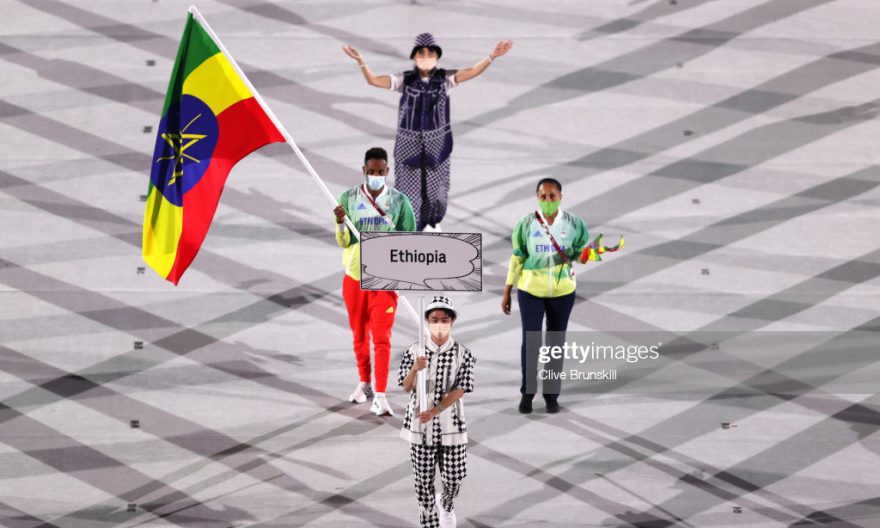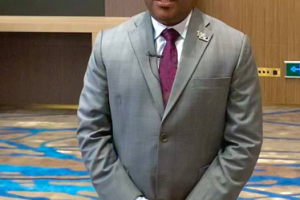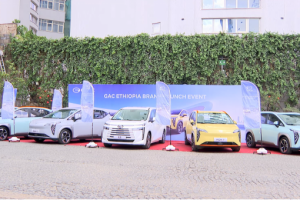
BY DARGIE KAHSAY
When the former Prime Minister of Japan, Shinzo Abe, visited Ethiopia in 2014, he began his visit by meeting Ethiopian star runners in Addis Ababa, including the son of Abebe Bikila, Yetnayet Abebe. Abe’s Ethiopia visit was part of his Africa tour, including Ivory Coast and Mozambique, hoping to boost ties and business relations with the continent and expanding key trading partners.
Carrying his country’s agenda of strengthening diplomatic relations with Ethiopia and African countries, he started visiting Ethiopia by discussing with Ethiopian runners in Addis Ababa before he discussed with Ethiopian officials.
During his discussion with the athletes, he raised the Ethiopian athletics hero, Abebe Bikila and the athlete’s landmark victory of the 1964 Tokyo Olympic Marathon which initiated him to meet the first Ethiopian top athletes. During his discussion with the athletes, Abe said that “My name is Abe, but everybody teased me at school, calling me Abebe. When I saw Abebe stretching afterwards, it was such a surprise, even for a 10-year-old.” He indicated that the Japanese generation of that time remembers Abebe’s heroism and dedication to win the race.
After he discussed with the Ethiopian running heroes, Abe said that “Today I had the opportunity to meet famous athletes from Ethiopia as well as the son of Mr Abebe, as well as wonderful children boys and girls who will one day be gold medalists, or who will one day be winners at the 2020 Tokyo Olympics and Paralympics,” AFP reported then. Now, Tokyo is hosting its 2nd Olympic Games of the 2020 Olympics after 57 years of Abebe’s Marathon victory of the 1964 Tokyo Olympics.
Ethiopia and Tokyo have a special memory concerning the Olympics and Ethiopians are still waiting for the 2020 Tokyo Olympic races mainly on athletics. In the 1964 Tokyo Olympics, Abebe Bikila won the Olympic Marathon gold medal with a new world best time of 2 hours 12 minutes 11.2 seconds. This was his second gold in Olympic Marathon as he won the 1960 Olympic marathon gold medal in Rome. It also made him the first person ever to win two marathon gold medals.
The Tokyo 1964’s Abebe Bikila Marathon victory was not simply a sporting event winning. Abebe remains in the heart of millions of Japanese and promotes Ethiopia and Africa in general for the world community. When the Japanese think of Ethiopia, they always remember Abebe Bikila and Abebe plays a crucial role in strengthening the people-to-people relations between the two countries and Africa and Japan in general beyond the sports victory.
In October 2014, Ethiopian Embassy in Japan organized an event to commemorate the 50th anniversary of Abebe Bikila’s Tokyo Marathon Victory of the 1964 Olympic Games. The Embassy noted that “Abebe (He) was not only a hero for Ethiopians but also Africans and the whole world. Abebe is famous in Japan among elder generations who remember his strength and endurance.”
During the 50th anniversary of Abebe’s Tokyo Marathon victory, the Chiba Aqualine Marathon, one of the largest marathon events in Japan, commemorated Abebe’s achievements with a specially dedicated race, The “Abebe Cup” was awarded to the winners of the Men’s and Women’s races by Mr Yetnayet Abebe, Abebe’s son. At that time, Ethiopian Airlines also awarded a round trip air ticket to visit Ethiopia as a prize to the winners, the Embassy reported in its annual newsletter.
Ambassador Dr Markos Tekle, Ethiopian Ambassador to Japan in 2014 stated during an event commemoration of Abebe’s achievement stated that the late Abebe would be remembered among the Japanese community and his legacy could be a bridge contributing to a broadening of ties between Ethiopia and Japan as well as Africa and Japan in general.
Ethiopian Journalist Elias Meseret this week on his social media stated that “what surprised me when I had visited Japan two years ago is, Japanese are still remembering Abebe Bikila’s 1964 marathon victory and they deeply know his history. From the taxi driver I had met at Narita Airport up to Hotel receptions I got a chance to communicate, they know the history and victory of Abebe.” In addition, when I visited an elementary school found near Yokohama City, I found the school children learning Ethiopian history and Abebe’s story was part of their Ethiopian history education.
The history of Ethiopia and Japanese diplomatic relations dates back to 1930 when Japan and Ethiopia signed the Treaty of Amity and Commerce, which marked the first diplomatic relations Japan opened with an African country, according to the Ethiopian Embassy in Japan. The treaty was followed by the visit of the Ethiopian Foreign Minister Heruy Woldesellassie. This tells us, Ethiopia was a getaway for Japan to Africa and Ethio-Japan’s bilateral relationship is the oldest in Africa and the base for Africa-Japan current strong relations.
Full diplomatic relations between Ethiopia and Japan began in 1935 when both countries established legations in each other’s capitals. After the restoration of the diplomatic relations in 1955, following the Second World War, Ethiopia and Japan opened Embassies in each other’s capitals, Addis Ababa and Tokyo in 1958, following the visit of Emperor Haile Selassie of Ethiopia to Japan.
As the diplomatic ties between the two countries gained momentum from time to time, the 1964 Tokyo Olympics started to bring a new chapter in the Africa-Japan people to people relations as Abebe Bikila attracts the attention of the people of Japan. “The 1964 Tokyo Olympic Games, Abebe Bikila’s marathon victory caught the public imagination in Japan and played a great role in bringing greater popular awareness of Ethiopia (and Africa) in Japan,” the Embassy stated in its 2014 News Letter. Since then the diplomatic relations between Ethiopia and Japan developed from year to year, though it was faced a challenge during the Derge regime.
Now, the diplomatic relations of Japan and Africa in general and Ethiopia, in particular, promotes a win-win approach and developed to a higher level. Through the initiative of the TICAD partnership, Japan strengthens its relations with Africa which encourages mutual engagement for common developments.
After 57 years of the Tokyo Olympic Games of 1964, Tokyo for the second time is now hosting the 32nd Olympic Games of 2020 which counts its sixth day in Tokyo, launched last Friday, in the capital of Japan. According to International Olympic Committee (IOC), some 11,000 athletes are participating in the 2020 Tokyo Olympics from 205 National Olympic Committees and IOC Refugee Olympic Team. The competition continued and different medals are awarding to the winners in different sports events and the competition continues.
The Tokyo Olympic Games will award 339 medals across 33 different sports, of which five sports are newly added during this Tokyo 2020 Olympic, the Baseball, Karate, Sport Climbing, Skate Boarding and Surfing are the new sports featuring for the first time, IOC reported on its website. Japan prepared 43 venues for the Olympic Games and countries across the world are participating in the sports events.
At the 2020 Tokyo Olympic Games, Ethiopia is participating in four different types of sports, athletics, swimming, cycle and taekwondo and some 65 athletes are selected for these competitions. The delegations of Ethiopia’s Olympic teams are travelled to Tokyo to repeat the victory of the late Abebe Bikila’s Tokyo historic win.
As mentioned above, Abebe’s victory was not a simple sports event victory or title, it becomes a bridge to strengthen the relations of Ethiopia 9and Africa) with Japan especially in people-to-people relations. For example, Abebe’s son, Yetnayet on one occasion said that “Japan is my second home next to Ethiopia and I love the people of Japan like Ethiopian’s”.
In the 2020 Tokyo Olympic Games, many African athletes including Ethiopia top running heroes are waiting for race titles to make another history in Tokyo.
THE ETHIOPIAN HERALD JULY 28/2021




